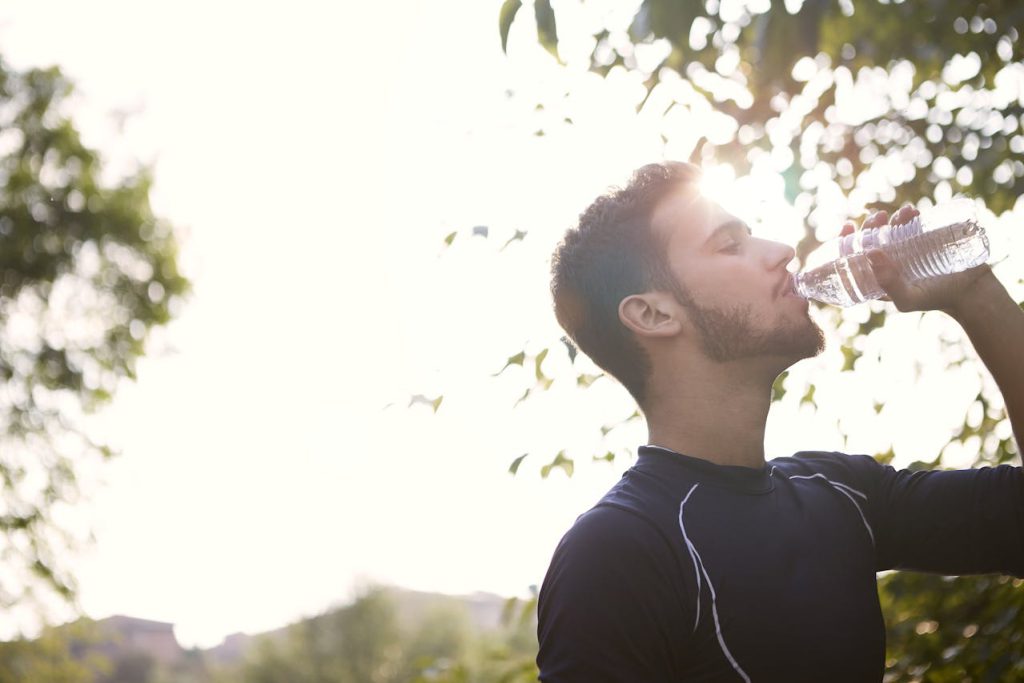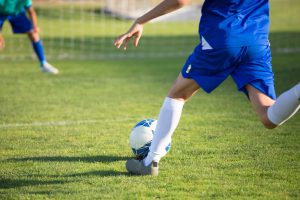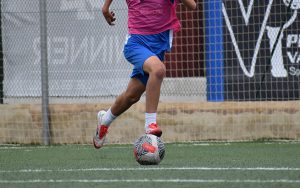Mastering the right hydration tips for youth soccer players can make a bigger difference than you might think. Staying properly hydrated doesn’t just keep you from feeling tired—it impacts reaction speed, endurance, and decision-making on the field. If you want to perform like a top player, hydration has to be part of your training game plan.
At the most renowned football programs, hydration is treated as seriously as skill work and fitness. Why? Because a dehydrated player can’t train—or compete—at 100%.
If you want to play harder, recover faster, and think sharper during games, mastering hydration should be part of your daily routine. Let’s dive into everything young players (and parents) need to know. 💧⚡
Table of Contents
- Why Hydration Matters So Much in Soccer
- How Much Water Should Youth Soccer Players Drink?
- Best Practices for Soccer Hydration 🧃
- Foods That Help With Hydration 🥝🍉
- Watch Out for These Hydration Mistakes ❌
- Signs You’re Dehydrated During a Game
- Special Hydration Tips for Hot Days ☀️🔥
- Coaches and Parents: Your Role in Hydration
- Hydrate Like a Champion
Why Hydration Matters So Much in Soccer
Soccer demands non-stop movement: sprinting, cutting, recovering, and thinking—all under pressure. When you’re even slightly dehydrated:
- Your muscles fatigue faster 🏃♂️
- Your coordination drops 📉
- Your concentration weakens 🧠
- Your risk of cramps and injuries rises 🚑
And the worst part? You might not even feel super thirsty yet when dehydration is already slowing you down.
That’s why smart players hydrate before they feel thirsty.
How Much Water Should Youth Soccer Players Drink?
There’s no single magic number, but a good general guideline is:
✅ About 5-7 ml of water per kg of body weight at least 4 hours before training or games.
✅ Plus regular sips (not gulps!) during activity—around 100-200 ml every 20 minutes depending on heat and intensity.
For a quick mental picture:
If you’re a 40-kg player (about 88 lbs), you should drink around 200-300 ml (roughly a big glass) a few hours before kickoff.
Best Practices for Soccer Hydration 🧃
Here’s how youth players can stay fully fueled without overcomplicating things:
Start Early
Don’t wait until you’re on the field to start drinking. Hydration begins the night before a big game!
Steady Sips Over Big Gulps
Chugging a liter of water at once before training won’t help. Your body absorbs small amounts much better.
Water First, Sports Drinks Later
✅ For most practices and matches, water is enough.
✅ In very hot conditions, after about an hour of hard play, sports drinks can help replace electrolytes.
Check Your Urine Color
Strange but true:
- Light yellow = hydrated
- Dark yellow = drink up!
Quick, easy way to monitor without fancy tools.
Foods That Help With Hydration 🥝🍉
Eating certain fruits and veggies can give your hydration an extra boost:
- Watermelon 🍉
- Cucumbers 🥒
- Oranges 🍊
- Strawberries 🍓
- Lettuce 🥬
Adding these to your meals or snacks keeps you ahead of the hydration game naturally.
Watch Out for These Hydration Mistakes ❌
Even serious players sometimes get tripped up by simple errors. Here’s what to avoid:
🚫 Only drinking when you’re thirsty – It’s too late by then.
🚫 Overloading on sugary sports drinks – They’re helpful sometimes, but water should be your base.
🚫 Skipping fluids after training – Recovery hydration matters as much as pre-game hydration.
🚫 Ignoring heat and humidity – You’ll need more water when it’s hotter or more humid, even if you don’t notice it right away.
Stay proactive, not reactive.
Signs You’re Dehydrated During a Game
Be aware of how your body is feeling. These warning signs mean you need fluids fast:
- Dry mouth
- Dizziness
- Headaches
- Muscle cramps
- Feeling sluggish or unable to focus
If any of these kick in, it’s smart to take a break and hydrate properly instead of pushing through.
Special Hydration Tips for Hot Days ☀️🔥
Soccer in the summer heat hits differently.
Here’s how to stay safe and strong:
- Drink cold water pre-game to slightly lower core temperature.
- Wear light, breathable gear.
- Take advantage of every official water break (and advocate for one if needed).
- Add a little extra salt to meals before games to help retain hydration (if approved by a nutritionist or coach).
Remember: Heat exhaustion can sneak up quickly—hydration is your first line of defense.
Coaches and Parents: Your Role in Hydration
Adults need to model smart habits and remind young players often—especially at younger ages when they might not feel thirst clearly yet.
✅ Bring extra water bottles to every session.
✅ Make water breaks mandatory, not optional.
✅ Celebrate players who hydrate well, just like those who hustle.
Teaching good habits young pays off forever.
Hydrate Like a Champion
Staying on top of these hydration tips for youth soccer players is one of the simplest ways to unlock better endurance, sharper decision-making, and faster recovery. It’s not about fancy supplements or secret techniques—it’s about consistent, smart habits built into your daily routine.
Drink early. Drink often. Play at your best. 💧⚽🔥
Your body (and your future performances) will thank you.




